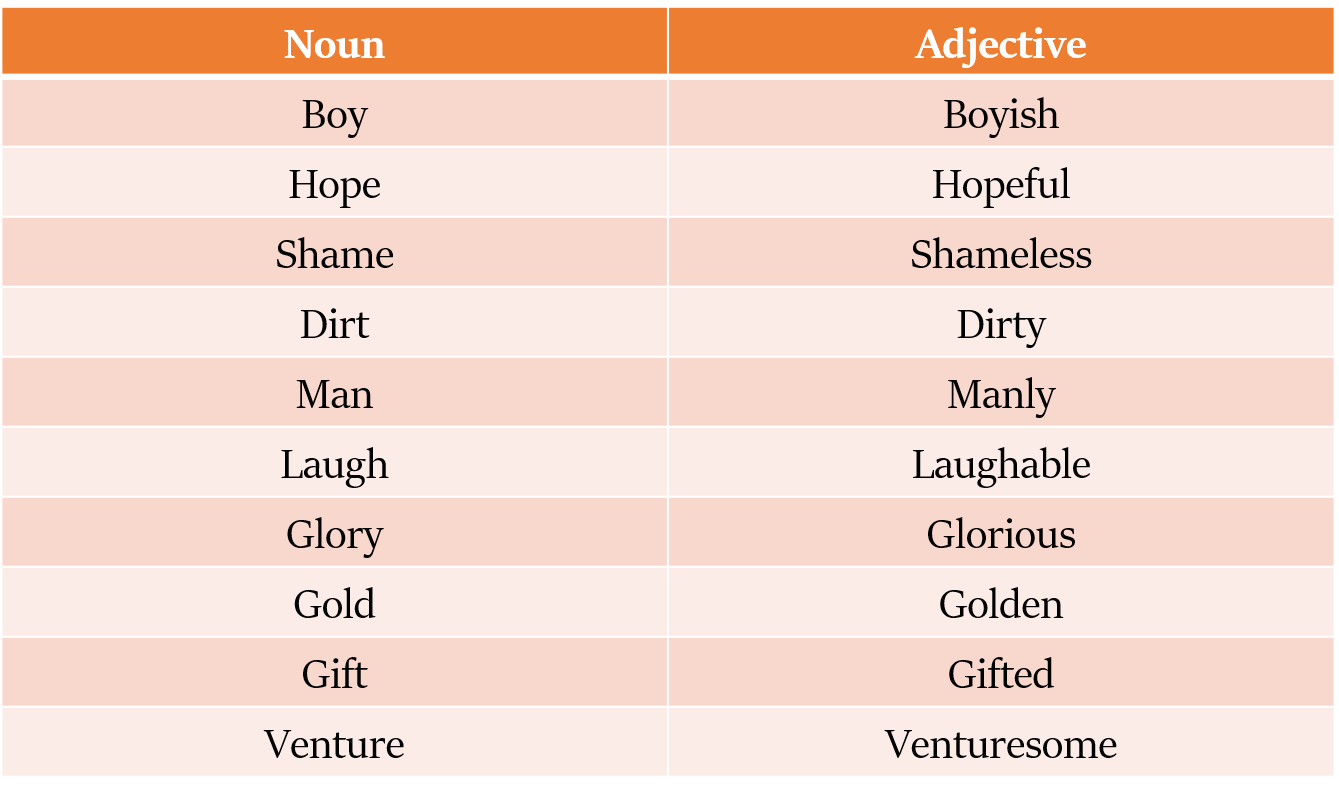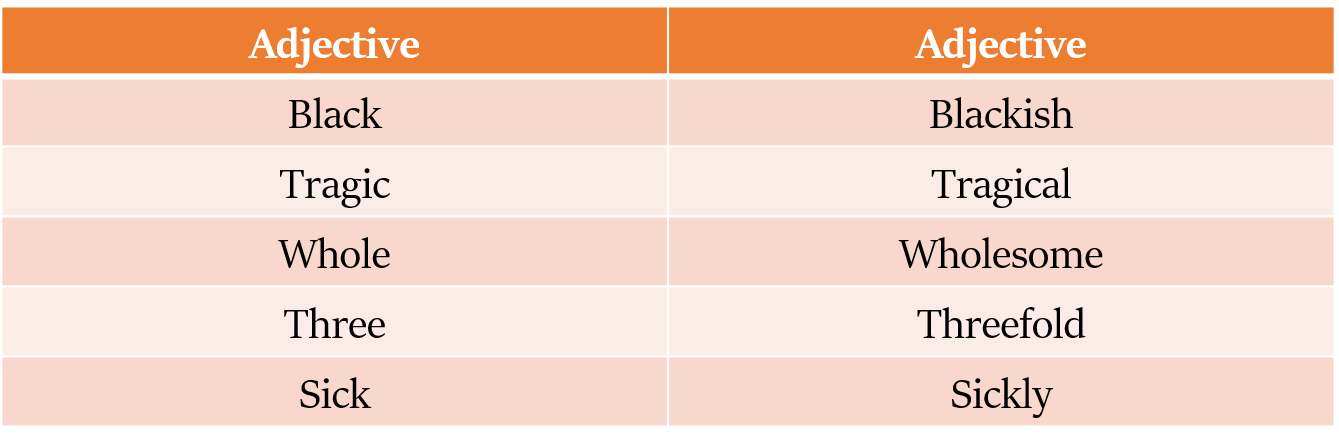Formation of Adjectives
In this article we will study how various types of Adjectives are formed.
There are three types of Adjectives, based on the degree of comparison:
- Positive degree
- Comparative degree
- Superlative degree
Let’s start with the Adjectives of Positive degree.
Formation of Adjectives of Positive degree
Adjectives are formed from:
- Nouns
- Verbs
- Other Adjectives
Adjectives formed from Nouns
Many Adjectives are formed from Nouns.

Adjectives formed from Verbs
Some Adjectives are formed from Verbs.

Adjectives formed from Adjectives
Some Adjectives are formed from other Adjectives.

Formation of Comparative and Superlative Degrees of Adjective
Now, let us understand how Comparative and Superlative Degrees of Adjective are formed.
Adjectives of one syllable
In most Adjectives of one syllable (and some of more than one), we add:
- er in the positive degree to form the Comparative degree and
- est in the positive degree to form the Superlative degree.

But there are various exceptions to this general rule.
Exception 1
When the adjective of positive degree ends in e, only r and st are added.

Exception 2
When the adjective of positive degree ends in ‘y’, preceded by a consonant, the ‘y’ is changed into ‘i’ before adding ‘er’ and ‘est’.

If a vowel is present before ‘y’, only ‘er’ and ‘est’ should be added.

Adjectives of two or more syllables
To form the Comparative and Superlative degrees of adjectives of two or more syllables, in general we put more/less and most/least before the positive form.

Adjectives with two syllables that are only used (or are most commonly used) with more/less and most/least are:
participle adjectives, i.e. two-syllable adjectives ending in ing or ed (e.g. pleased, worried, boring, surprised)
two-syllable adjectives ending in -ful and -less (e.g. careful, useful, careless, hopeless)
many other two-syllable adjectives (e.g. afraid, alike, alert, ashamed, alone, aware; cautious, certain, complex, confident, eager, exact, famous, foolish, formal, frequent, modern, recent)
But as usual, there are exceptions to this too. In fact, most other adjectives with two syllables (than those listed above) can take two forms.
Adjectives without comparative or superlative forms
There are certain adjectives that cannot be compared. So, these adjectives do not have comparative or superlative forms.
For example: square, round, circular, perfect, excellent, eternal, universal, unique, extreme, major, minor, equal, interior, exterior, ulterior, empty, excellent, chief, entire, complete, final, last, triangular, eternal, everlasting, ideal, absolute, impossible and supreme.
These adjectives already have a comparative or superlative meaning. So, they are rarely used with -er/-est or more/less/most/least.
This is a case of most extreme malnutrition. (incorrect)
This is a case of extreme malnutrition. (correct)
She is the most unique character in this movie. (incorrect)
She is a unique character in this movie. (correct)
This headset is more inferior to that. (incorrect)
This headset is inferior to that. (correct)
Exceptions
We know that a thing cannot be more square, more round, more perfect. But there are some exceptions where we do use them.
For example:
All ministers are equal but some ministers are more equal than others.
This is the most perfect specimen I have seen.
Adjectives used in only positive and superlative degree
Some adjectives only have positive and superlative degrees. They do not have a comparative degree form.
Let’s see some of these adjectives.


Extra Books and Tools
If you prefer to learn via books, or want some good English Grammar books for reference purposes, you may read this article which enlists some of the books recommended by us.